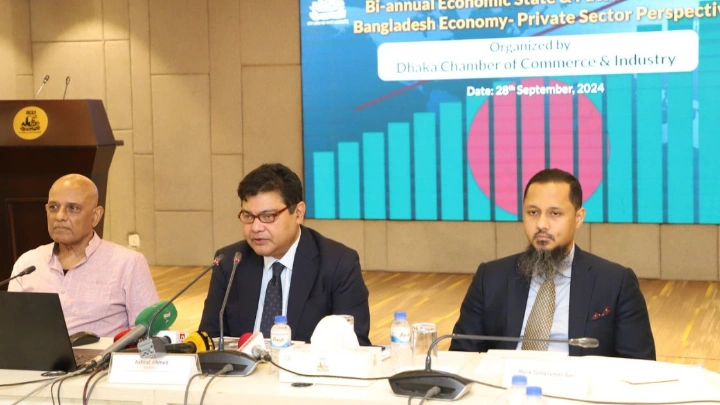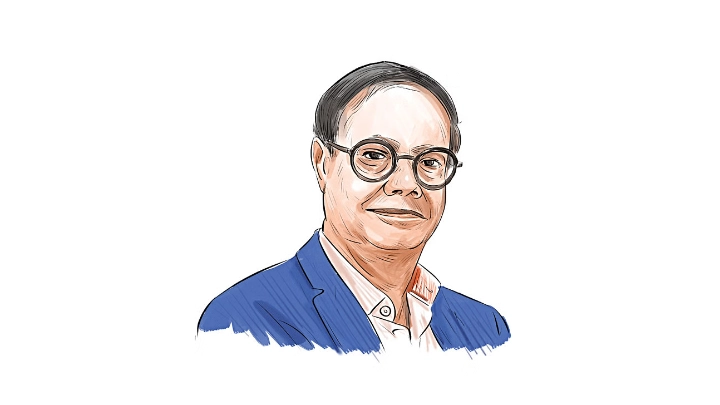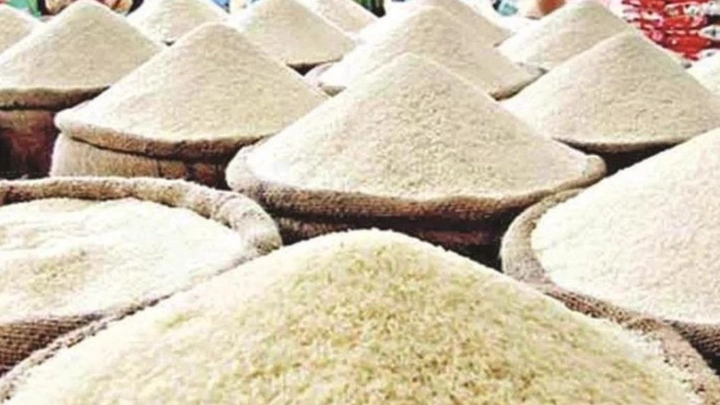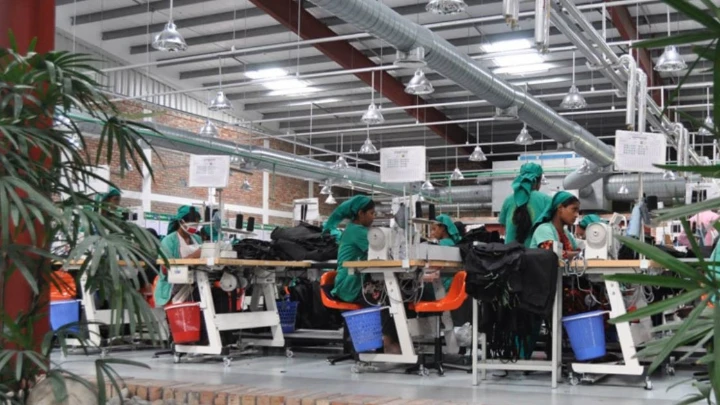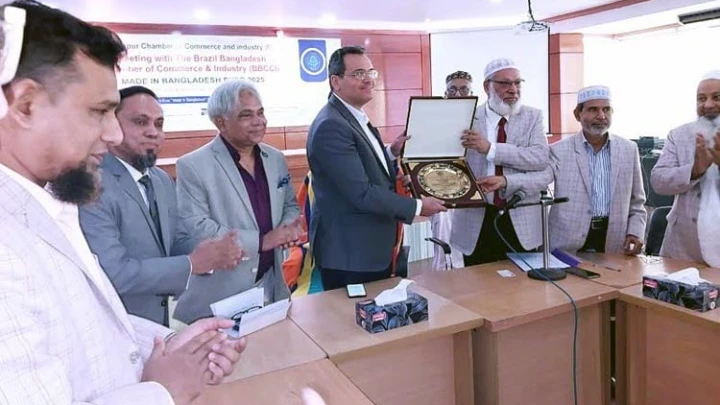Gas crisis, inflation, labour unrest key headwinds to export growth
DailySun || Shining BD
The country’s exports have been significantly impacted over the past several months, primarily due to macroeconomic challenges such as the energy crisis, inflation, and labour unrest in factories, among other factors, stated Dhaka Chamber of Commerce & Industry (DCCI) President Ashraf Ahmed on Saturday.
He made these remarks during a seminar titled “Current State & Future Outlook of Bangladesh Economy: Private Sector Perspective,” held at the DCCI auditorium in the capital.
Ashraf urged the government to address these challenges, alongside fully reinstating law and order and addressing labour unrest, to restore confidence in investment.
Regarding inflation control, he opined that although a high interest rate might work temporarily, maintaining such rates for an extended period would hamper investment, employment, and economic growth.
“The agro and agro-processing sector contributes 11.02% to GDP and employs 45% of the workforce. However, poor logistics and a lack of direct market linkages for farmers, which prevent them from selling their produce at fair prices, remain significant problems. Approximately 30%-50% of produce is wasted, contributing to inflation. This wastage could be reduced by 10% through the use of modern technology,” he added.
Inflation rose in August, followed by a slight slowdown in September. The average inflation rates for general, food, and non-food items were recorded at 9.78%, 10.04%, and 9.34%, respectively.
He suggested establishing a robust domestic supply chain, minimising wastage, improving the outdated logistics system, and implementing modern market mechanisms to control inflation.
The DCCI president also noted that Bangladesh Bank raised the policy rate to 9.5% to curb inflation, with further hikes expected. High fuel prices, currency depreciation, and rising transportation and logistics costs have affected locally produced goods. These factors, combined with inflation, have increased living expenses and business costs.
He expressed optimism that balance of payment issues would soon be resolved and that export levels could be maintained. He also anticipated that the devaluation of the taka would ease as the US dollar rate stabilises, potentially reducing energy costs.
Ashraf highlighted the credit crunch in the Cottage, Micro, Small, and Medium Enterprises (CMSME) sector, emphasising the need to maintain loan disbursement flow to ensure sufficient working capital.
The DCCI president stressed the importance of mid-term reforms across policies, investments, and government operational procedures to foster a better business environment and investment climate.
He also advocated for a flexible monetary policy once inflation is under control. Increased tax revenue collection, he said, would ease public sector loan repayments.
Regarding the low rate of private investment, Ashraf emphasised that restoring confidence would gradually boost investment. “We must ensure uninterrupted industrial production to sustain export levels and support foreign currency earnings. The electronics and semiconductor sector is one of the most promising areas in the export basket, following ready-made garments,” he added.
‘It’s high time macroeconomic stability be restored’
Economist and former director general of the Bangladesh Institute of Development Studies (BIDS) Dr Khan Ahmed SayeedMurshid highlighted the need for swift responses in today’s rapidly changing world, noting that both economic and non-economic challenges must be addressed urgently.
He underscored the importance of broad-based, inclusive growth that ensures fundamental necessities such as food security, power and energy security, as well as access to education and skill development.
To capitalise on future opportunities, he pointed out that AI-based technologies will have a significant impact on the global economy. DrMurshid also called for improvements in public governance and urged the private sector to be prepared to embrace these new advancements.
At the same seminar, Executive Director of Research and Policy Integration for Development (RAPID) Dr M Abu Eusufemphasised the need for prudent monetary and fiscal policies, along with effective market monitoring, to curb inflation. He underscored that macroeconomic stability is now crucial for the country’s overall economic development.
“We need accurate and realistic data on population, GDP size, and other statistical components to fully understand the economy’s actual scenario,” he said, advocating for data-driven research.
DrEusuf termed three ‘R’ – RMG (ready-made garments), remittances, and rice production – as central to stabilising the economy. He called for product diversification to enhance export growth, adding that with adequate support, Bangladesh’s leather sector could generate at least US$10 billion annually.
He further recommended increasing the tax-to-GDP ratio and recognising Non-Resident Bangladeshis (NRBs) who contribute remittances by providing them with additional facilities. Additionally, he suggested enhancing revenue from direct taxes.
Chief Economist’s Unit Director (Research) of Bangladesh Bank, DrMdSalim Al Mamun, highlighted the holistic reforms being undertaken in the financial sector.
“Though the service sector has not experienced significant growth recently, it must improve in terms of quality. Bangladesh Bank has been working to modernise related policies,” he noted.
DrMamun mentioned several measures to tackle inflation, such as raising the policy rate and tightening monetary policy, which are expected to yield positive results soon. He echoed the sentiment that addressing macroeconomic stability is now the most pressing challenge.
Shining BD

